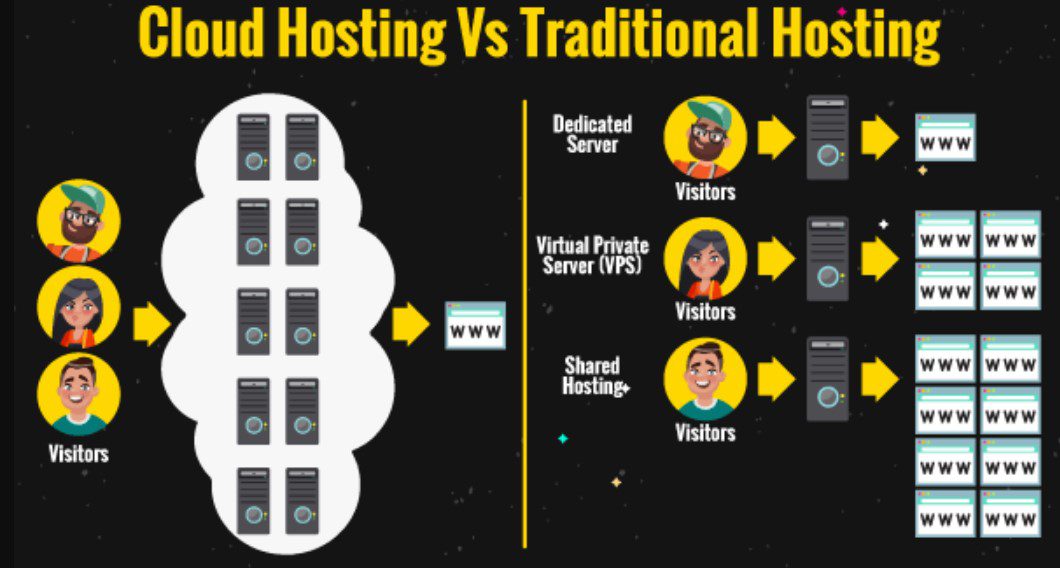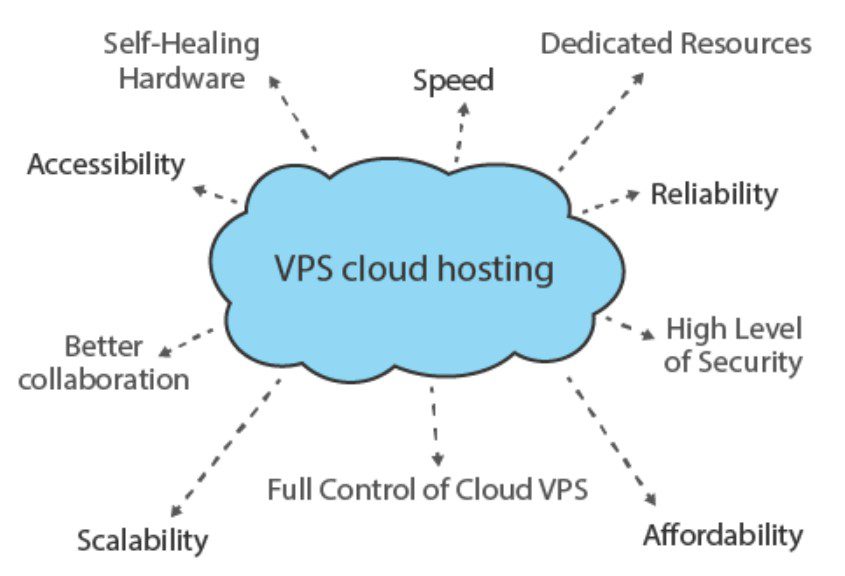Blogs
Home / Blog


When you are trying to create a successful business from scratch or upscale your existing one, it is important that every element performs at the highest possible level , including your web servers. No wonder, most businesses are switching to Cloud VPS, which lets you enjoy all the benefits of a VPS server – minus the limitations associated with the virtual private server.
While there are numerous benefits of using cloud VPS over standard shared hosting, including economic feasibility, greater control, speed, scalability, greater uptime, independence of location, and the option to choose your own operating system, you need to know the ins and outs of this solution to take full advantage of this burgeoning technology.
Cloud VPS is a popular hosting option for many online businesses. It is scalable and more cost-effective than traditional hosting services, and offers users the flexibility to choose their own operating system.
Cloud VPS services have been gaining popularity in the past decade. It is a boom that has been fueled by modern advances in technology. In this article, you will learn everything you need to know about cloud VPS.
To better understand what cloud VPS really is, you first need to understand the difference between cloud and VPS server.

Cloud computing is basically a network of remote servers hosted on the internet instead of a local and on-premise server or personal computer.
Virtual Private Server is a private dedicated hosting environment that runs on specific resources from a parent server through virtualization.
A cloud VPS is essentially a multi-tenant cloud hosting, where virtual server resources are allocated to end users either through the internet, cloud or hosting. Even though each server is installed on a physical machine operated by a cloud or hosting provider, which runs multiple virtual private servers with the help of virtualization.
Cloud VPS hosting offers tons of advantages over traditional VPS hosting. Some of them are as follows:

h2>There are two ways you can scale your cloud VPS
A quick resize gives you the flexibility to add additional hardware resources such as more RAM and processing power whenever you need them. For instance, if you are experiencing a traffic spike and need more resources to deal with the influx, you can easily acquire additional resources with quick resize.
As the name suggests, a full resize scales all the resources of the server, which is why it takes longer to complete a full resize as compared to a quick resize. Be sure to perform a full resize during off peak hours otherwise it could disrupt your business operations, leading to downtime and lost sales.
Cloud VPS gives you more accessibility. This means that you can gain access and control your server from a single dashboard, using only an internet connected device.
Another perk of adopting a cloud VPS is its cost-effectiveness. You only pay for what you use. Most VPS cloud server providers adopt a pay-as-you-go model which means that you are only charged for resources you use. Some even offer other payment options such as pricing per gig or quota based pricing models. You can choose one that suits your business needs.
You don’t have to worry about losing your data when you choose a cloud VPS. Your data is stored on multiple hard drives in multiple locations. Most importantly, your data is frequently being backed up as well. This means that if something goes wrong, you might be able to get access to your data by restoring it from a backup. Luckily, the process is pretty straightforward and takes only a few clicks.
Unlike shared hosting, you get access to dedicated resources with a cloud VPS. This means that your server is isolated and you don’t have to worry about sharing a server with a bad neighbor. This also goes a long way towards protecting your data from cyberattacks and data breaches.
Another advantage of having dedicated resources is that you get better performance with a cloud VPS than you would with shared hosting. Even though you might not get the same level of performance as a fully dedicated server, a cloud server makes up for it with accessibility and scalability options that a dedicated server lacks.
Just like every other technology, cloud VPS also comes with its fair share of shortcomings. Some of them are as follows:
Would you choose cloud VPS over traditional VPS? If yes, why? Share it with us in the comments section below.
Enter your email to receive the latest news, updates and offers from HostNoc.
